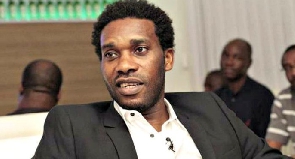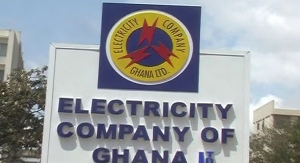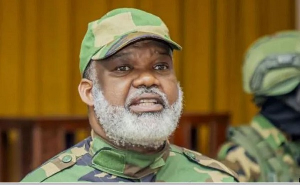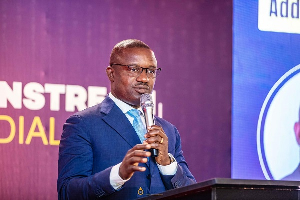*IMANI'S RED FLAG: Why Mobile Phones Must Be Banned In Voting Booths*
*Our Credentials*
It is another election year for us as a country. But most importantly, it is another crucial and defining moment to append our name in gold in the book of democratic credentials in African and the world. Having achieved this enviable feat over the years, we must safe-guard and repeat it in the upcoming elections to the envy and emulation of other Africa and the world. However, our processes were not corruption-proof. Some corrupt acts were rumored to have happened in the previous elections aided by the use of the mobile phone. It is a dent on electioneering process and image as a country.
*The Device: Mobile Phone*
Mobile phones have become an essential device prominent in our day-to-day activities and lifestyle in Ghana; having over ninety-eight percentage (98%) penetration in our country. That is over twenty four million (24m) mobile network subscribers using both feature and smart phones. The mobile phones with camera are used to carry out this act of secret ballot violation.
*The Vice*
It is, without a doubt, that during the previous elections it was heavily-rumored that some voters used their mobile phones to capture their ballots to use as evidence to collect payment from those they voted for on the day of elections. This is illegal and a clear violation of the constitutional provision which requires that “at any public election or referendum, voting shall be by secret ballot” as stated in the 1992 Constitution, Article 49, Section 1. In some jurisdictions, even polling officers are not allowed to use their personal mobile phones or electronic gadgets in polling stations, except the ones provided by their local Electoral Commission.
In Hong Kong, for example, “and, although elections are by secret ballot, there have been reports of voters — under pressure to support a particular candidate — using camera phones to take pictures of their ballots so as to prove that they had voted for the “right” person. As a result, signs were placed at polling stations to warn voters not to use their mobile phones or cameras inside voting booths.” (chinapost.com). The Election Commission of Thailand, having faced with a violation of secret ballot petitioned against them by People's Alliance for Democracy (PAD) “decided to make it illegal for anyone to snap a picture of their ballot while in the voting booth.” (Engadget.com).
The government of Brazil “deployed thousands of army and navy troops in the poorest neighborhoods of Rio de Janeiro to make sure that voters aren’t intimidated by the local drug lords who frightened voters into casting ballots for the candidates controlled by the local gangs—in some cases even demanding that they use a mobile phone to take a picture of their vote inside the polling booth.”(atlantablackstar.com). This was to ensure that their October 7th 2012 elections was free and devoid of secret ballot violations.
* *
*The Solution*
All political parties, Electoral Commission, Security Agencies, Human Rights Organizations, Civil Society, stakeholders of democracy and the voter populations must be engaged to ensure that the upcoming public elections is by secret ballots to enforce the constitutional provision. Stickers to this effect must be posted in and outside the voting booths to warn voters from engaging in such acts.**
In the Ohio County elections in the USA, signs were placed outside the voting station at the City-County Building in Wheeling which informed voters not to use their mobile phones in the booths. In West Virginia election laws prohibit the use of any electronic devices in the polling station.
*Conclusion*
Obviously, it is very clear that the use of mobile phones in voting booths must be discouraged and enforced so as to ensure secret ballot in the upcoming elections. The Electoral Commission must enforce this constitutional provision by preventing voters from using their personal mobile phones in the voting booths. This will guarantee free and fair election results as demanded of the Electoral Commission.
*For interviews and queries, please contact Mr. **Maximus Ametorgoh, IMANI’s Elections Project Coordinator and CEO of **PopOut **on **0264887887 **and Mr. Selorm Branttie, IMANI’s Commnications Director on 0**265139388 .*
-- Respectfully yours,
Franklin Cudjoe
*Cudjoe is Founding President of IMANI Center for Policy & Education. IMANI is a Think Tank of considerable local and international repute and significance. We have carved a niche in Ghana’s policy environment for putting out objective, independent analysis and critique on many issues, using tried and tested techniques that apply across different disciplines. In 2009, The Foreign Policy Magazine named IMANI, the fifth most influential think tank in Africa. In 2010, IMANI was the only named African think tank ranked in the top 25 most innovative think tanks in the world by the joint United Nations University and Pennsylvania University Global Think tanks Programme. In 2011 IMANI was voted the 6th most effective Think Tank in Africa and among Top 20 most innovative think tanks globally by the University of Pennsylvania, the UN University and Foreign Policy Magazine. IMANI has won two John Templeton Foundation awards, the first Antony & Dorian Fisher Award and cited in the United Kingdom's House of Commons' debate on aid and development in Africa as well as by South Africa's Supreme Court Judge on patents and intellectual property. In 2010 IMANI led the World Bank's Africa region's taskforce within to investigate what Africans needed from the World Bank. Email : info@imanighana.com Web : www.imanighana.com*
-- Respectfully yours,
Franklin Cudjoe
*Cudjoe is Founding President of IMANI Center for Policy & Education. IMANI is a Think Tank of considerable local and international repute and significance. We have carved a niche in Ghana’s policy environment for putting out objective, independent analysis and critique on many issues, using tried and tested techniques that apply across different disciplines. In 2009, The Foreign Policy Magazine named IMANI, the fifth most influential think tank in Africa. In 2010, IMANI was the only named African think tank ranked in the top 25 most innovative think tanks in the world by the joint United Nations University and Pennsylvania University Global Think tanks Programme. In 2011 IMANI was voted the 6th most effective Think Tank in Africa and among Top 20 most innovative think tanks globally by the University of Pennsylvania, the UN University and Foreign Policy Magazine. IMANI has won two John Templeton Foundation awards, the first Antony & Dorian Fisher Award and cited in the United Kingdom's House of Commons' debate on aid and development in Africa as well as by South Africa's Supreme Court Judge on patents and intellectual property. In 2010 IMANI led the World Bank's Africa region's taskforce within to investigate what Africans needed from the World Bank. Email : info@imanighana.com Web : www.imanighana.com*
Opinions of Tuesday, 16 October 2012
Columnist: IMANI






![The suspect, Daniel Tuffuor [L] and deceased Yobani Deladem Aku The suspect, Daniel Tuffuor [L] and deceased Yobani Deladem Aku](https://cdn.ghanaweb.com/imagelib/pics/404/40485450.295.jpg)











